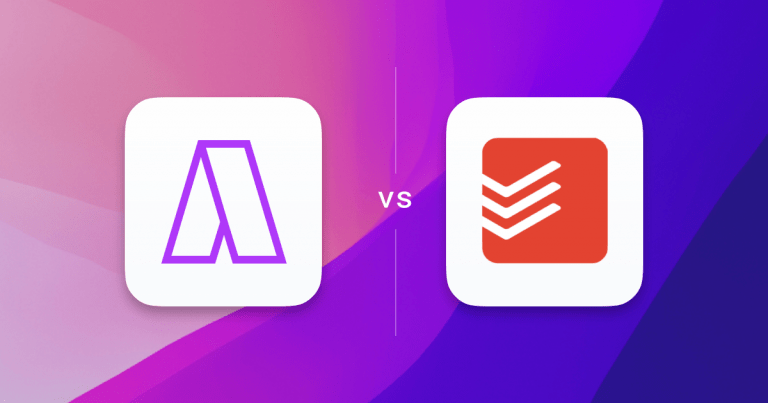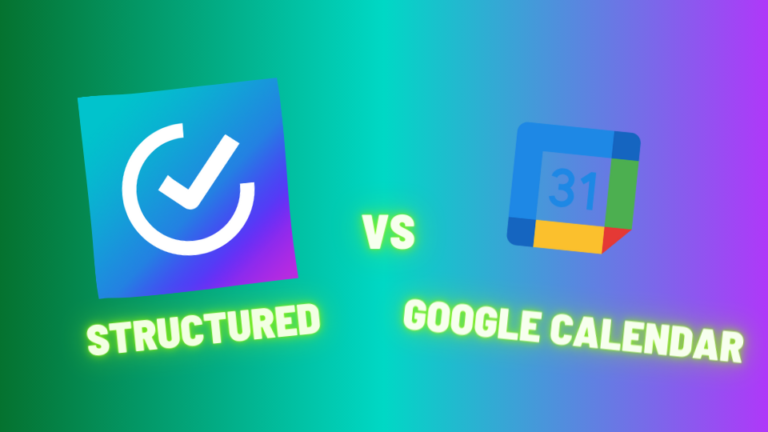What is Structured
Structured is a web-based daily planner application designed to enhance productivity and task management. It offers features like customizable task management, time tracking, goal setting, and progress tracking. The app is accessible across multiple platforms and integrates with other productivity tools. It’s suitable for individuals and teams aiming to efficiently manage tasks and projects. Structured’s user-friendly interface and cross-platform compatibility make it a comprehensive solution for daily and weekly planning.
Key Features of Structured
- Customizable Task Management: Structured allows users to tailor their task management experience. Users can set priorities, deadlines, and categorize tasks, enhancing organization and focus.
- Time Tracking: This feature helps users monitor how much time they spend on each task. It’s useful for productivity analysis and time management.
- Goal Setting: Users can set short-term and long-term goals, making it easier to track progress and stay motivated.
- Progress Tracking: Structured provides visual tools for tracking task and project progress, offering insights into productivity and areas for improvement.
- Cross-Platform Accessibility: The app is accessible across various devices, ensuring seamless task management and planning regardless of the user’s location or device.
- Integration with Other Tools: Structured integrates with other productivity tools, streamlining workflows and enhancing overall efficiency
What is Google Calendar
Google Calendar is free-to-use calendar application that excels in event planning, appointment scheduling, and integrating seamlessly with Google’s suite of services including Docs, Meet, and Tasks. It boasts features such as easy event scheduling, comprehensive integration with other Google services, sharing and collaboration tools, mobile access, automatic syncing across devices, customization options, and support for recurring events. Additionally, it offers functionalities like invitations and RSVP tracking, reminders, time management tools, search capabilities, holiday calendars, and weather integration for upcoming events.
Key Features of Google Calendar
- Seamless Integration with Google Services: Google Calendar is tightly integrated with Google’s ecosystem, including Gmail for event invitations, Google Meet for video conferencing directly from calendar invites, and Google Tasks for task management. This integration enhances productivity by keeping all tools in one accessible location.
- Easy Event Scheduling and Sharing: The platform enables users to quickly add events, set reminders, and share their calendars with others. This feature is designed to facilitate collaboration and ensure that scheduling meetings or events is a hassle-free process, making it ideal for both personal and professional use.
- Customizable Views and Event Colors: Users can customize their calendar views (day, week, month, or year) and assign colors to different events, making it easier to manage and visually distinguish between various types of appointments or tasks at a glance.
- Recurring Events and Reminders: Google Calendar supports the creation of recurring events and configurable reminders, which can be set to notify users via email or pop-up messages. This ensures that important dates are not missed and helps in establishing routines.
- Mobile Accessibility and Offline Support: With its mobile app, Google Calendar offers the convenience of accessing and managing your schedule on the go. Additionally, offline support means you can view your calendar and receive notifications even without an internet connection.
- Time Zone Support and Working Hours: This feature is particularly useful for those working across different time zones, as it automatically adjusts meeting times accordingly. Setting working hours also helps in managing availability, preventing meetings from being scheduled outside of these times.
Structured vs Google Calendar: Features
| Features | Structured | Google Calendar |
|---|---|---|
| Integrations | Apple Calendar, Google Calendar, Outlook, Microsoft Exchange, Yahoo Calendar, and AOL Calendar | ClickUp, Google Tasks, Zoom, Slack, Salesforce, Google Docs |
| Calendar | Yes | Yes |
| Platforms | macOS, iOS, Android | macOS, iOS, Android, Web |
| Task Management | Task editing and creation, labels, tags, progress, prioriy and recurring tasks | NA for Calendar |
| Natural Language Processing | No | Yes |
| Time Blocking | Yes | Yes |
| Analytics | No | No |
| Meeting Scheduler | No | Yes |
| Time Zones | No | Yes |
| Reminders | Yes | Yes |
| Customer Support | Average | Average |
| 1:1 User Onboarding | No | No |
| Pricing | A monthly subscription for $2.99, a yearly subscription for $9.99, and a lifetime subscription for $29.99, each providing full access to the app’s features. | Free to use |

Structured vs Google Calendar: Pricing
Structured Pricing
Structured offers three pricing plans:
(i) Monthly Subscription: $2.99
(ii) Yearly Subscription: $9.99
(iii) Lifetime Subscription: $29.99
All these subscriptions provide access to the same features and unlimited use of the app, the free version of Structured allows basic planning and organization, but upgrading to one of these plans unlocks additional features
Google Calendar Pricing
Free to use
Structured vs Google Calendar: Reviews
Structured Review
Structured is a user-friendly daily planner app praised for its ability to integrate tasks with calendar entries, offering a streamlined approach to time management. Its simple interface and visual timeline are particularly appreciated, making it easy to organize and view daily activities. However, some users might find its features limited compared to more comprehensive productivity tools. Additionally, the absence of certain functionalities like natural language processing and advanced task analytics may be a drawback for users seeking more sophisticated planning capabilities.
Google Calendar Review
Google Calendar is praised for its seamless integration with Google’s ecosystem, offering easy scheduling, comprehensive reminders, and mobile accessibility. It excels in simplicity and functionality, fitting both personal and professional use. However, it might lack advanced project management features found in dedicated tools, and some users may find its interface less customizable compared to specialized calendar apps.
Which One Should You Pick
Consider Structured if
- You Want a Visual Daily Planner: Structured is a good choice for those who prefer a visual representation of their tasks and calendar events, offering a clear, timeline-based view of daily activities.
- You Need Basic Task Management: If your requirements are centered around basic task organization without the need for advanced analytics or extensive features, Structured meets these needs effectively.
- You Prefer a Simplistic Interface: For users seeking an app with a straightforward, user-friendly interface, Structured’s minimalist design can be appealing, though it might lack the complexity desired by power users.
Consider Google Calendar if
- You seek simplicity and integration with Google’s suite for straightforward scheduling needs, though it may lack the depth in task management features found in more specialized tools.
- Your workflow benefits from easy access and sharing capabilities across devices, though it might not offer the advanced customization options of some competitors.
- You value the convenience of mobile access and automatic syncing, keeping in mind that users looking for comprehensive project management tools may find it limiting.
Best Structured and Google Calendar Alternative
Akiflow: Akiflow is a time management app offering time blocking, task scheduling, and integrations with various tools. It focuses on productivity and organization through a unified task and appointment interface.
Akiflow Price: $19 per month, paid annually

Best Time Blocking Web and Desktop Apps, 2024
Explore the best time blocking apps of 2024! Discover how Akiflow, TickTick, Usemotion, Sunsama, Sortedapp, and TimeHero revolutionize productivity, offering unique features for professionals and students to manage tasks and enhance efficiency.

Improve Focus: 5 ADHD Productivity Tools & Calendar Apps for 2023
Discover five of the best apps and tools for those with ADHD, from note-taking apps to time-blocking platforms. Get ready to stay organised, motivated and on track with Akiflow’s essential guide.

The Top 3 Todoist Alternatives (In-Depth Review)
Over 25 million people now use Todoist to stay on track and plan their day. It has expanded rapidly and is now a widely used task manager with seamless integrations into other task and calendar managers like Akiflow. While Todoist is hugely popular among its wide user base, there are now a variety of Todoist […]

